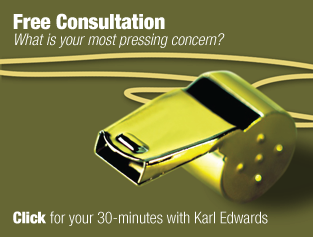Controlling or Cruising?
Toward which extreme would your planning approach tend? Controlling or cruising?
Do you try to control more than may be possible, humanly speaking? Stick to tight schedules even if it means working nights and weekends. Keep everyone on task even if it means writing standard operating procedures for sharpening pencils. Coordinate activities across departments even if it means nagging people several times a day.
Or have you given up on planning? Circumstances change too quickly on the ground for any plan to stand a chance of being implemented. Technology will change, a competitor will undercut your break even price, a key supplier will go out of business, an important team member will go on maternity leave at a crucial juncture. So you cruise. Go with the flow. Use your intuition. Shoot from the hip. Respond to issues as they arise.
(If you haven’t listened to this week’s podcast, take ten minutes now as Claudia and I take on strategic planning as the second segment of our coaching regimen No Excuses Leadership.)
As you’ve probably guessed, both sets of skills are crucial for successful strategic planning. They each address a stark reality leaders face. They each fail when adopted exclusively and universally. There is a vital proactive, aggressive, intentional component to planning. There is also a vital reactive, responsive, perceptive, discerning component.
Where do you fall on the controlling versus cruising spectrum? What have you learned from veering too closely to either extreme?







May 2nd, 2008 at 10:27 am
Great post Karl — and how true that the answers onften lie in the balance. Yet by showing the two polarities here — one can better steer the ship through adventures somewhere near the middle. Would you agree that in moments of risk — we also nudge the stern toward the edges. The question will often be — which edge for each situation – and how can we remember to hurry back:-) Thoughts?
May 2nd, 2008 at 4:25 pm
Ellen,
Good question. Thanks for chiming in.
I think as long as failure is viewed as a black mark on the record to be avoided at all cost instead of a treasured learning opportunity earned at great cost, risk will have trouble finding a place at the proverbial table.
I hadn’t thought much about whether people tend to control extremely or cruise disinterestedly in situations of risk, but you’ve got a great point. Both born of fear, I’d imagine.
Am I naive to suggest there’s minimal downside to risk? If a given risk pays off you achieve your immediate goal, and if a risk doesn’t work out you achieve valuable learning. In either case an achievement. In either case a success.
How do we suggest a change in perceptions?